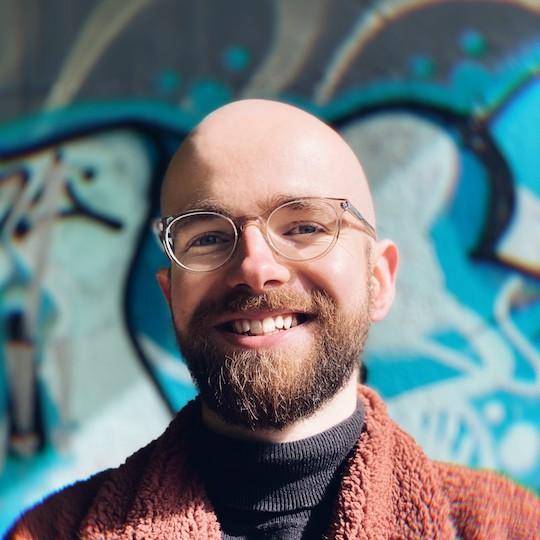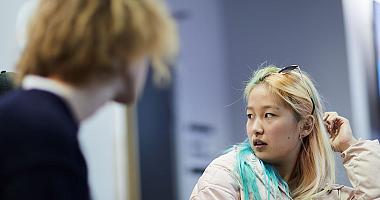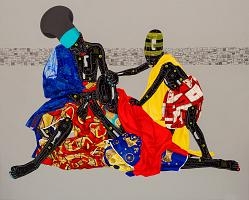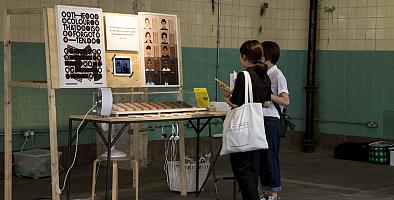MA
Political Communications
Content navigation menu
Why study MA Political Communications at Goldsmiths
Interrogate the status quo with leading academics who don’t just talk and write about politics, but actively campaign to create change in the world.
- All around us governments are in crisis, protests are on the increase, dissent and mobilisation is widespread and relayed across the world instantaneously on a screen. Communication is at the very heart of the structures, institutions and actors that give meaning to politics in governments, in parties and on the street.
The questions we ask
- How has the rise of social media changed the way we participate in politics? Who holds the power to influence political decisions that structure our lives? How might democracy be done better? Is “fake news” really that new, or has news always been prone to distortion? Can grassroots political campaigners ever be as successful as wealthy corporate lobbyists, and if so - how?
- We take an expansive view of political communications. You’ll learn about politics and communications at the level of governments and parties, campaign groups, social movements and activists, old and new media organisations, and everyday citizens. The MA takes in debates from how to understand the current global crisis of democracy, to the role of emotion, feeling and “affect” in politics; and from whether “populism” can ever be a force for good to how the news industry might adapt to the rise of social media.
The approach we take
- We’re active, not passive, so this course isn’t just about having our heads in books, it’s about applying ideas to the real world. We’ll expect you to be reading the news every day because we want you to engage with what’s happening and unravel it. The MA is run by academics who are also experienced campaigners and political strategists. As one recent student said: “You can be sure that every page of theory presented in MA Political Communications is strongly grounded in years of political practice”.
- There are also opportunities to interact with industry experts, get involved in live campaigns and collaborate with people coming from all over the world. We pride ourselves on fostering a supportive environment and offering an open door throughout your time with us. At Goldsmiths the conversations are always just starting.
- The Department of Media, Communications and Cultural Studies has been ranked second in the UK for 'world-leading or internationally excellent' research (Research Excellence Framework, 2021) and 16th in the world (third in the UK) in the 2024 QS World Rankings for communication and media studies.
Contact the department
If you have specific questions about the degree, contact Dr Jacob Mukherjee.
Length
1 year full-time or 2 years part-time
Entry requirements
You should have (or expect to be awarded) an undergraduate degree of at least 2:1 standard in a relevant/related subject. You might also be considered if you aren’t a graduate or your degree is in an unrelated field, but you have relevant experience and can show you can work at postgraduate level.
Fees
Home - full-time: £10350
Home - part-time: £5175
International - full-time: £20460
Department
Watch videos about the programme
Overview
The programme’s core curriculum addresses the interaction of media and political power in the context of a multifaceted global crisis of democracy and communication. Topics covered include:
- The impact of social media of electoral politics, protest mobilisation, new production, and citizen campaigning
- Interest groups, social movements and alternative media
- Misinformation, disinformation, “fake news” and conspiracy politics
- Who controls the news?
- Political parties, party ideologies and political organisation
- Public relations, political marketing and spin
- Media audiences, effects and agenda-setting
- Politics and popular culture
- Race, migration and rise of authoritarian populism
- Social theories of power, culture and communications, from framing theory to the politics of affect, and from hegemony to the propaganda model
Theory is applied to a number of case study areas on, for example: conflict and war; elections; ecological crises; protests and riots; social movements. Theory and discussion is always related to current events and debates.
Structure
- Two compulsory modules taught in the Department of Media, Communications and Cultural Studies (60 credits in total)
- A personal dissertation project involving first-hand empirical research (60 credits)
- Option modules chosen Department of Media, Communications and Cultural Studies or from other departments including Politics and International Relations (60 credits)
What you'll study
Compulsory modules
All students take the following modules:
| Module title | Credits |
|---|---|
| The Structure of Contemporary Political Communication (PG) | |
| Critical Perspectives on Political Communications | 30 credits |
| MA Political Communications Dissertation and Research Methods | 60 credits |
Note about optional modules (if available): The above is indicative of the typical modules offered, but is not intended to be construed or relied on as a definitive list of what might be available in any given year. The module content and availability is subject to change.
How you'll be assessed
The MA is assessed primarily through coursework essays and written projects. Practical modules may require audiovisual elements to be submitted.
Students also complete a personal dissertation research project of 12-15,000 words on a topic of their choice within the broad field of political communications, media and communications or cultural studies.
What our students say

Entry requirements
You should have (or expect to be awarded) an undergraduate degree of at least upper second class standard in a relevant/related subject.
You might also be considered for the programme if you aren’t a graduate or your degree is in an unrelated field, but you have relevant experience and can show that you have the ability to work at postgraduate level.
International qualifications
We accept a wide range of international qualifications. Find out more about the qualifications we accept from around the world.
If English isn’t your first language, you will need an IELTS score (or equivalent English language qualification) of 6.5 with a 6.5 in writing and no element lower than 6.0 to study this programme. If you need assistance with your English language, we offer a range of courses that can help prepare you for postgraduate-level study.
How to apply
Apply directly to Goldsmiths using our online application system
You apply directly to Goldsmiths using our online application system.
Before submitting your application you’ll need to have:
- Details of your academic qualifications
- The email address of your referee who we can request a reference from, or alternatively a copy of your academic reference
- Copies of your educational transcripts or certificates
- A personal statement – this can either be uploaded as a Word Document or PDF, or completed online. Please see our guidance on writing a postgraduate statement
You'll be able to save your progress at any point and return to your application by logging in using your username/email and password.
When to apply
We accept applications from 1 October for students wanting to start the following September.
We encourage you to complete your application as early as possible, even if you haven't finished your current programme of study. It's very common to be offered a place that is conditional on you achieving a particular qualification.
Late applications will only be considered if there are spaces available.
If you're applying for funding, you may be subject to an earlier application deadline.
Selection process
Final admission to many programmes is by interview, unless you live outside the UK. Occasionally, we'll make candidates an offer of a place on the basis of their application and qualifications alone.
Find out more about applying.
Fees and funding
Annual tuition fees
These are the PG fees for students starting their programme in the 2024/2025 academic year.
- Home - full-time: £10350
- Home - part-time: £5175
- International - full-time: £20460
If your fees are not listed here, please check our postgraduate fees guidance or contact the Fees Office, who can also advise you about how to pay your fees.
It’s not currently possible for international students to study part-time under a student visa. If you think you might be eligible to study part-time while being on another visa type, please contact our Admissions Team for more information.
If you are looking to pay your fees please see our guide to making a payment.
Funding opportunities
Football Writers Association (FWA) Bursary
The aim of the FWA Bursary is to encourage those students who come from backgrounds that are underrepresented in the industry.
Explore the Goldsmiths scholarships finder to find out what other funding you may be eligible for.
Paying your fees
Find out about how to make a payment.
If you are a UK student you may be eligible for a postgraduate loan.
Additional costs
In addition to your tuition fees, you'll be responsible for any additional costs associated with your course, such as buying stationery and paying for photocopying. You can find out more about what you need to budget for on our study costs page.
There may also be specific additional costs associated with your programme. This can include things like paying for field trips or specialist materials for your assignments. Please check the programme specification for more information.
Key staff
Members of the Political Communications teaching team include:
- Dr Jacob Mukherjee
- Professor Natalie Fenton
- Professor Des Freedman
- Professor James Curran
- Dr Gholam Khiabany
- Dr Feyzi Ismail
Find out about staff in the Department of Media and Communications.
Research
Be taught by professionals and industry experts
Teaching draws on the professional and research expertise of the department’s highly regarded staff. Research generates global interest with 80% of staff producing research classified as ‘world leading’ or ‘recognised internationally’.
Currently, all core teaching staff are active participants of the Leverhulme Spaces of the News research project, investigating developments in digital news media and politics, the Centre for the Study of Global Media and Democracy and the Media Reform Coalition.
The course also takes advantage of the diverse set of teaching, research and practical resources available to the Department of Media and Communications at Goldsmiths. This large department offers a wide range of theoretical subjects and perspectives.
Careers
We know that political organisations relish thinking graduates. It’s why we focus on delivering a programme that’s rooted in a critical perspective. By the time you leave we want you to feel transformed so that you can go forward and transform the world.
Our graduates go on to work within government organisations, political parties, NGOs and news media and across the public and private sectors - from the Houses of Parliament and BBC World Service to Google, Greenpeace and the UN.
Find out more about employability at Goldsmiths.





